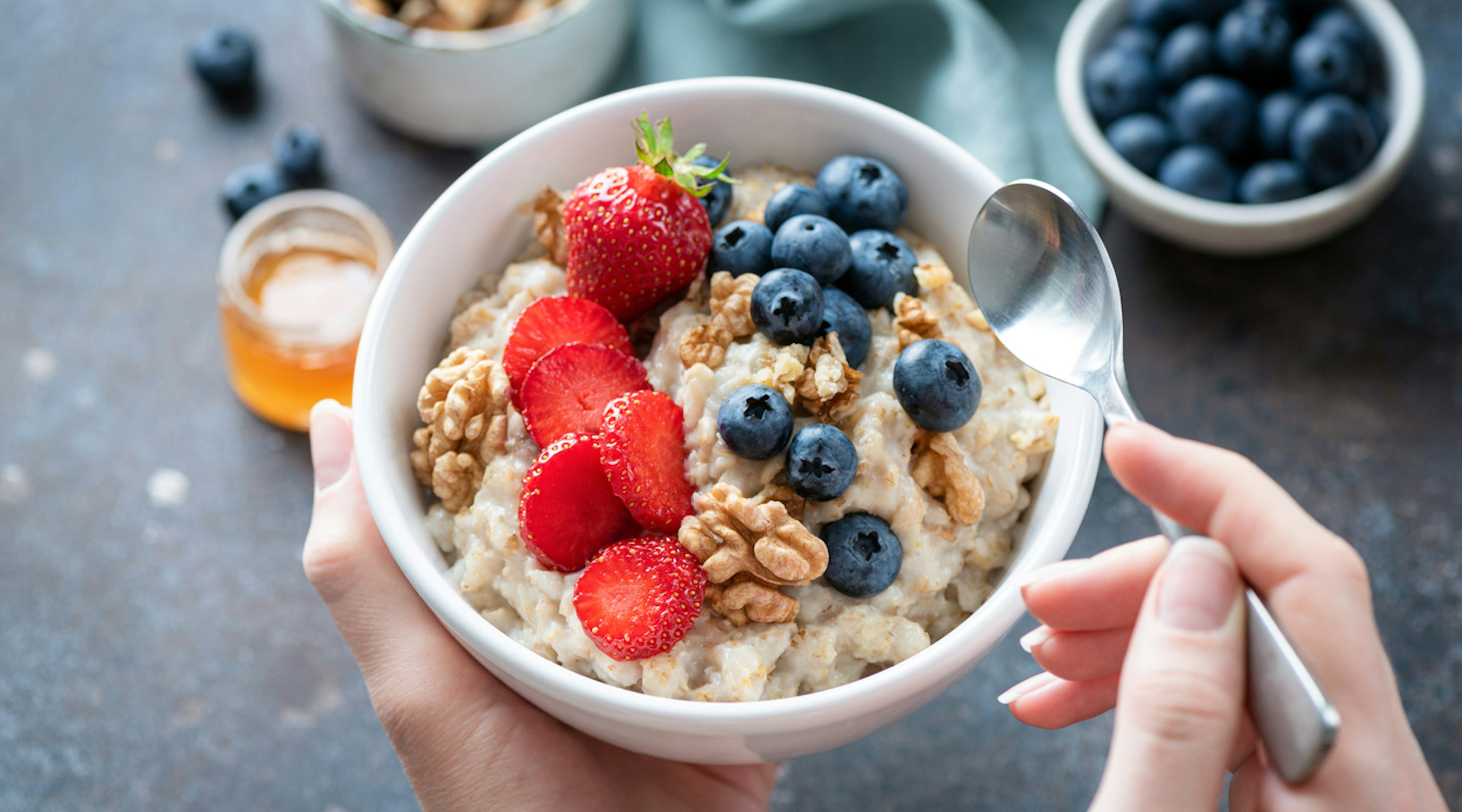Exploring different diets for different health conditions
7 min read
Emily Ledger
Diet has been linked to a huge number of health conditions, many of which represent a significant risk of morbidity. Yet, while many of us may make a conscious effort to eat a relatively healthy diet, we may overlook how different diets can benefit or exacerbate certain existing health conditions.
We’re taking a look at the importance of nutrition when it comes to treating and preventing some of these conditions.
Contents
Diet and your health
Nutrition is extremely important in almost every aspect of our mental and physical health. Some of the world’s leading causes of morbidity, including cancer, stroke, and heart disease, are intrinsically linked to our diet. Moreover, globally, nine of the top 15 risk factors for morbidity, including high blood pressure, cardiac arrest, and diabetes, are associated with poor diet.
Most people are aware of the harms associated with high-fat, salt, and sugar diets, yet the role of our diet in the holistic management of chronic health conditions is often overlooked. But eating for your health isn’t just about cutting down on saturated fats and eating more vegetables. In fact, different health conditions can benefit from significantly different approaches to diet and nutrition.
In some cases, special diets may be prescribed by your clinician to complement your treatment plan. So, what are the best diets for different conditions?
Best diets for epilepsy
The ketogenic diet is a special high-fat, low-carbohydrate diet that may be prescribed to patients with epilepsy when conventional anti-seizure medications prove ineffective. While it is not always effective, it has been found to be potentially useful for a number of epilepsy conditions, including Rett syndrome, tuberous sclerosis complex, Dravet syndrome, and Doose syndrome.
The ketogenic diet works by replacing carbohydrates with fat as the body’s primary source of fuel. This causes the liver to produce more ketones. While higher levels of this chemical have been linked to improved seizure control, it is not fully understood how this works. Moreover, its restrictive nature means that many patients struggle to keep up a consistent ketogenic diet over extended periods.
In recent years, variants of the ketogenic diet have gained traction in the treatment of certain epilepsies, including the Modified Atkins diet.
Best diets for diabetes and heart health
Less restrictive than the ketogenic diets, diabetes-friendly diets again focus on a reduction in unhealthy carbs as well as sugar, fat and salt. This doesn’t relate to a particular special diet, but instead encourages making conscious choices about nutrition that will help to manage blood sugar levels and improve your overall health.
For example, switching to wholegrain bread and wholegrain pasta, reducing your intake of processed foods, and introducing a wider variety of fruits, vegetables, and plant-based protein can all help you better manage diabetes.
But what about the best diet for heart health?
Well, the simple changes mentioned above can also be extremely beneficial for heart health. For example, the Dietary Approaches to Stop Hypertension (DASH) eating plan encompasses many of the same principles.
Health benefits of the Mediterranean diet
You might have heard about the health benefits of the Mediterranean diet - a diet that emphasises plant-based foods and healthy fats. Indeed, the Mediterranean diet has been linked to a lower risk of cardiovascular disease, high blood pressure and cholesterol, and obesity.
Moreover, the Mediterranean diet may help to prevent cognitive impairment and brain health. While more research is needed, some evidence suggests that adhering to a Mediterranean-style diet may protect against the risk of Parkinson’s disease and potentially other neurodegenerative diseases.
Diet and mental health
A number of studies have found an association between diets high in refined sugars and impaired brain function.
But exactly how does diet affect mental health?
Our brains need healthy fats, such as monounsaturated and polyunsaturated fats, to function effectively. On the flip side, unhealthy fats, like trans fats, may be linked to an increased risk of depression.
Evidence suggests that eating traditional diets, such as the Mediterranean or traditional Japanese diets, are associated with a significantly lower risk of depression and better overall brain health when compared to "Western” diets (typically higher in processed foods and unhealthy fats).
How can your diet aid your medical cannabis treatment?
Often, the effective treatment and management of chronic conditions requires an holistic approach. It is therefore important to be mindful of the effects of your diet, not only on your general health but also on your treatment plan. In doing so, it is possible for your nutrition and medication to work synergistically to achieve better results.
For example, different foods have been shown to affect the bioavailability of cannabinoids (the proportion of a drug or other substance that is effectively absorbed into the body), potentially affecting your medical cannabis treatment.
Cannabinoids such as THC and CBD are lipophilic (fat-loving) compounds. This means they have a high affinity to fat and bind effectively with fatty tissues in the body. Various studies have shown that consuming cannabinoid-based products alongside fatty foods can significantly increase their bioavailability, potentially enhancing their therapeutic effects.
Of course, this doesn’t mean you should be taking your medical cannabis dose alongside a takeaway burger or pizza. However, introducing foods containing healthy fats, such as oily fish, nuts and seeds, olive oil, and avocado, could be a beneficial step in your medical cannabis journey.
FAQs
What are the 7 main food groups for a healthy diet?
The 7 main food groups are:
- Carbohydrates (energy)
- Protein (growth and repair)
- Fats (essential for body functions)
- Vitamins (regulation of bodily processes)
- Minerals (bone health and metabolism)
- Water (hydration)
- Fibre (digestive health)
What are the three main diets?
The "three main diets" are:
- The Mediterranean diet focuses on whole grains, healthy fats, and fresh produce.
- The ketogenic diet is low-carb and high-fat, aimed at forcing the body into a state of ketosis, where it burns fat for energy instead of carbs.
- Plant-based diets emphasise fruits, vegetables, and legumes, offering a sustainable and nutrient-rich option.
What are the three main categories of a healthy diet?
A healthy diet can be grouped into three main categories:
- Balance between all 7 main food groups and nutrients
- Variety introduces a range of foods to meet nutritional needs
- Moderation avoids excessive intake of any single nutrient
What are the different types of diet analysis?
Diet analysis involves assessing food intake to understand nutritional value and dietary habits. The three most common are:
- Nutrient analysis (evaluating macros and micros)
- Food group analysis (checking diversity across groups)
- Calorie tracking (monitoring energy intake)
Final thoughts
Diet and health are inextricably linked. While poor diet is associated with an increased risk of potentially life-threatening diseases, healthy diets can not only help in the prevention but also the treatment of a wide range of health conditions. Being aware of how your diet influences your specific health condition can be invaluable in ensuring an effective holistic approach to your treatment.
If you are interested in learning more about UK medical cannabis, and how it may help you, head over to our blog and education hub.
Share article
Did you like this article?
It is important to seek medical advice before starting any new treatments. The patient advisors at Releaf are available to provide expert advice and support. Alternatively, click here to book a consultation with one of our specialist doctors.
Elevate your wellness with medical cannabis
Get comprehensive care, convenience, and confidence with an all-in-one treatment plan.
Am I eligible?Authors
Emily, an accomplished content writer with a specialisation in cannabis and alternative health, leverages her five years in the sector to enhance education and diminish stigma around medicinal cannabis use.
Editorial Policy
All of our articles are written by medical cannabis experts, guided by strict sourcing guidelines, and reference peer-reviewed studies and credible academic research. Our expert clinical team and compliance specialists provide valuable insights to ensure accuracy when required. Learn more in our editorial policy.
Need more help?










